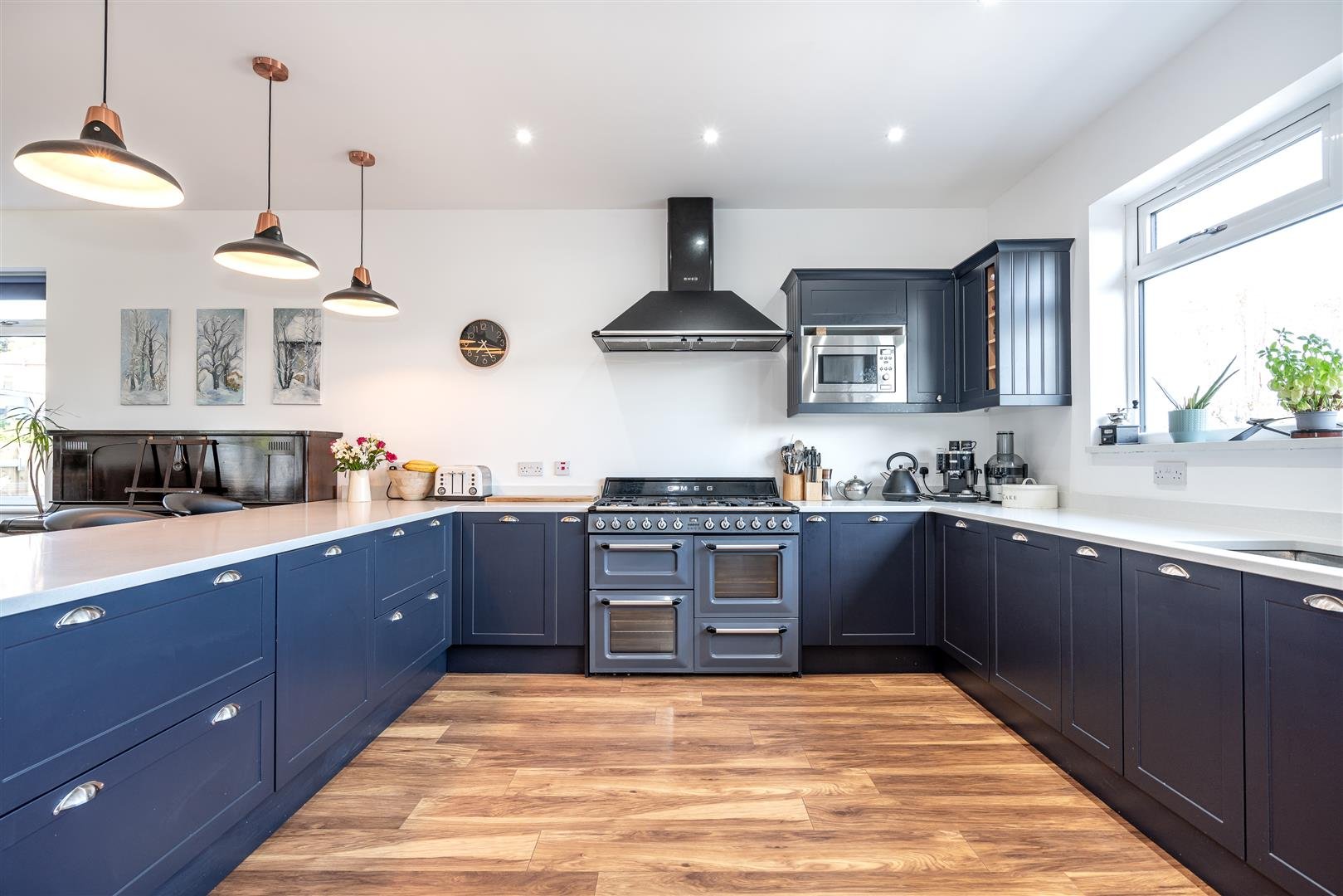10 Professional Design Tips for Your Perfect Home Extension
A new kitchen extension creates ideal family living space.
Building a home extension can enhance your living space and significantly increase your property's value, providing a considerable return on investment. Here’s a list of our top 10 tips to ensure your project maximises its potential:
1. Plan for the Future:
Think about potential lifestyle changes or family expansion to ensure your extension remains functional and enjoyable for years to come. Advanced planning can ensure you meet evolving needs and save significant time and money in the long term.
2. Understand Local Architecture:
A design that respects the original architectural style of your home by complementing or contrasting can blend the new with the old, creating a cohesive aesthetic. This approach also helps to maintain the character of the local neighbourhood which can be important for planning permission.
3. Consider Your Extension Type:
From lofts to kitchen extensions, each extension type serves a different purpose and offers unique advantages, so it’s important to choose one that best fits your needs. Assess your property’s layout and thoroughly consider your family’s needs and lifestyle to help you guide this decision.
A bungalow extension adds extra bedrooms to this family home in Glasgow.
4. Maximise Natural Light:
The strategic placement of windows and skylights can enhance the mood and energy efficiency of your home, promoting well-being, a healthier living environment, and the feeling of space.
5. Invest in Energy Efficiency:
Enhance your home’s energy performance using eco-friendly materials and technologies. Focus on insulation and air tightness to significantly lower heating costs and your environmental impact. Adopt a 'fabric first' strategy for effective heat retention and cost savings. Integrate systems like Mechanical Ventilation with Heat Recovery (MVHR) for reduced heat losses thtough ventilation, and opt for renewable heating solutions like biomass boilers and heat pumps to further reduce carbon emissions. Discover more on energy-efficient buildings in our eco house guide.
Eco-friendly glazing floods this living area with light and enhances sustainable living.
6. Avoid Common Problems:
Detailed planning and realistic budgeting can prevent you from over-extending yourself and ensure that your project does not disrupt your daily life more than necessary. Awareness of potential challenges helps you plan solutions in advance.
7. Seek Expert Guidance:
Architects and builders can offer creative solutions and help you navigate complex regulations. Before starting your extension, understand the planning policies and building regulations in your area. Some extensions may not need a full planning application under 'Permitted Development' if they meet specific criteria, while others will. Ensure your project complies with design, construction, and energy standards by seeking early advice from local authorities or a professional. This step is crucial for legal compliance and optimising the design and functionality of your new space.
A kitchen dining room extension connects the home’s indoor and outdoor spaces in Glasgow.
8. Tailor to Your Site:
The unique aspects of your property, such as its orientation, landscape, and existing structures, should influence the design of your extension. This customisation ensures the new extension feels integrated and enhances your property as a whole.
9. Budget for the Unexpected:
A well-planned budget with a built-in contingency allows for adjustments without compromising the project's quality or completion. Having some additional funds set aside can help to absorb any unexpected costs that may arise during your construction project.
10. Embrace Flexibility:
Being open to modifications during the project can lead to improvements in the outcome. Adaptability is crucial for addressing unforeseen challenges and making the most of new opportunities that may arise during the construction process.
For more in-depth advice and home extension ideas, we invite you to explore our comprehensive guides on making the most of your home's potential through extending. Discover valuable insights and tips by visiting our blogs on House Extensions in Glasgow, Loft Conversions, Kitchen Extension Design and Architect Costs.




